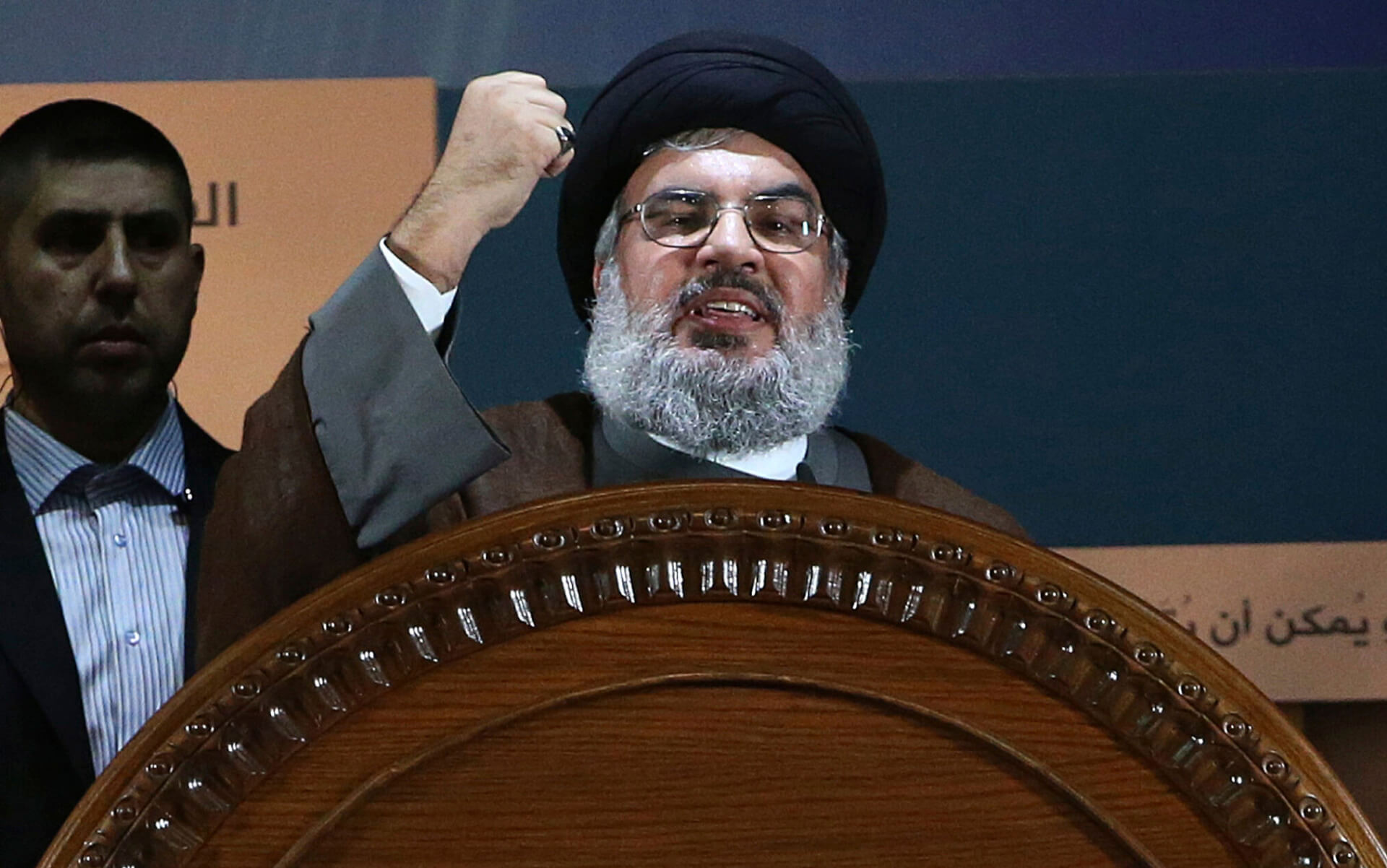Hezbollah chief Hassan Nasrallah said on Wednesday that Lebanon prefers diplomatic solutions to war in its Mediterranean dispute with Israel, perhaps reflecting the group’s softening stance.
He said the possibility of war breaking out over the dispute “is not certain,” adding that it is not in Hezbollah’s interest to open a new conflict with Israel. “We only want our rights, and we’re escalating our rhetoric so that the Americans and Israelis submit, because the course of the collapse in Lebanon is continuing,” Nasrallah said, referring to the country’s economic crisis.
“We hope not to fire a bullet or a rocket and for the enemy to back down. We are awaiting developments, and we’re ready for everything,” he stressed. Nasrallah asserted that Israel’s actions would ultimately determine whether the situation leads to a full-blown conflict. “We might witness a surgical attack and a proportionate response, and the issue is related to the response of the Israelis, which might push things gradually to war,” he said.
Nasrallah added that Hezbollah does not plan to obstruct the ongoing talks between Israel and Lebanon to resolve the dispute. Furthermore, he called the negotiations “a historic and golden chance to overcome its [Lebanon’s] crisis” and warned that “if we don’t make use of it, we might not extract oil for the next 100 years.”
Noting that Lebanon only wants to extract its fair share from the natural gas field, Nasrallah emphasised that the group would not allow Israel to drill from the area “if Lebanon does not get its rights.”
3/3 Hizbullah Sec.-Gen. Hassan Nasrallah Threatens Gas Drilling Facilities Along Israel’s Shore, Adds: War And Martyrdom Are More Honorable Than Dying in Altercation in a Gas Station or Bakery pic.twitter.com/CuxCPeT6Q0
— MEMRI (@MEMRIReports) July 14, 2022
Referring to the so-called ‘axis of resistance’ comprising Hezbollah, Hamas, Iran, and the Syrian regime, the Shia leader said Israel was aware of the resistance’s power and “might bow without any act from the resistance.”
Last month, Lebanon warned Israel last month against drilling in the Karish offshore natural gas field after claiming that the field is located in the disputed region of their maritime boundary. The tensions were sparked by the arrival of a drilling vessel belonging to Greek company Energean Power, which was granted a license to operate Karish till 2044 in 2016. Karish, Hebrew for shark, is estimated to contain 1.4 trillion cubic feet of proven and probable gas reserves.
Keeping this in mind, Hezbollah warned Israel against drilling in the area before reaching a comprehensive agreement. Earlier this month, the group launched three armed drones toward the field and warned that it would continue to attack Karish unless Israel halted drilling. While Israel downed the drones and sent warships and anti-missile systems to the region, a military escalation could overwhelm Israel’s defences.
That being said, Hezbollah’s change in stance came a day after Israel warned that any attack on Israeli soil would lead to a harsh response. Israeli Prime Minister Yair Lapid said on Tuesday that the activities of Hezbollah “endanger Lebanon, its citizens and their wellbeing.” He added, “While we have no interest in escalation, Hezbollah's aggression is unacceptable and is liable to lead the entire region into an unnecessary escalation, just when there is a genuine opportunity for Lebanon to develop its energy resources.”
“Israel’s natural gas reserves have the potential to contribute toward a solution for the global energy crisis. Lebanon could also benefit from developing the reserves in its economic waters, through negotiations, which should be concluded forthwith,” Lapid said separately on Tuesday, after flying over the Karish field.
Israel and Lebanon have long been at loggerheads regarding claims over coastal drilling and exploration rights in the Mediterranean Sea. While both sides started negotiations brokered by the United States and the United Nations in 2011 that focussed on around 860 square kilometres, Lebanon claimed an additional area of 1,430 square kilometres in 2020. The Karish gas field falls under the newly extended area claimed by Beirut.

